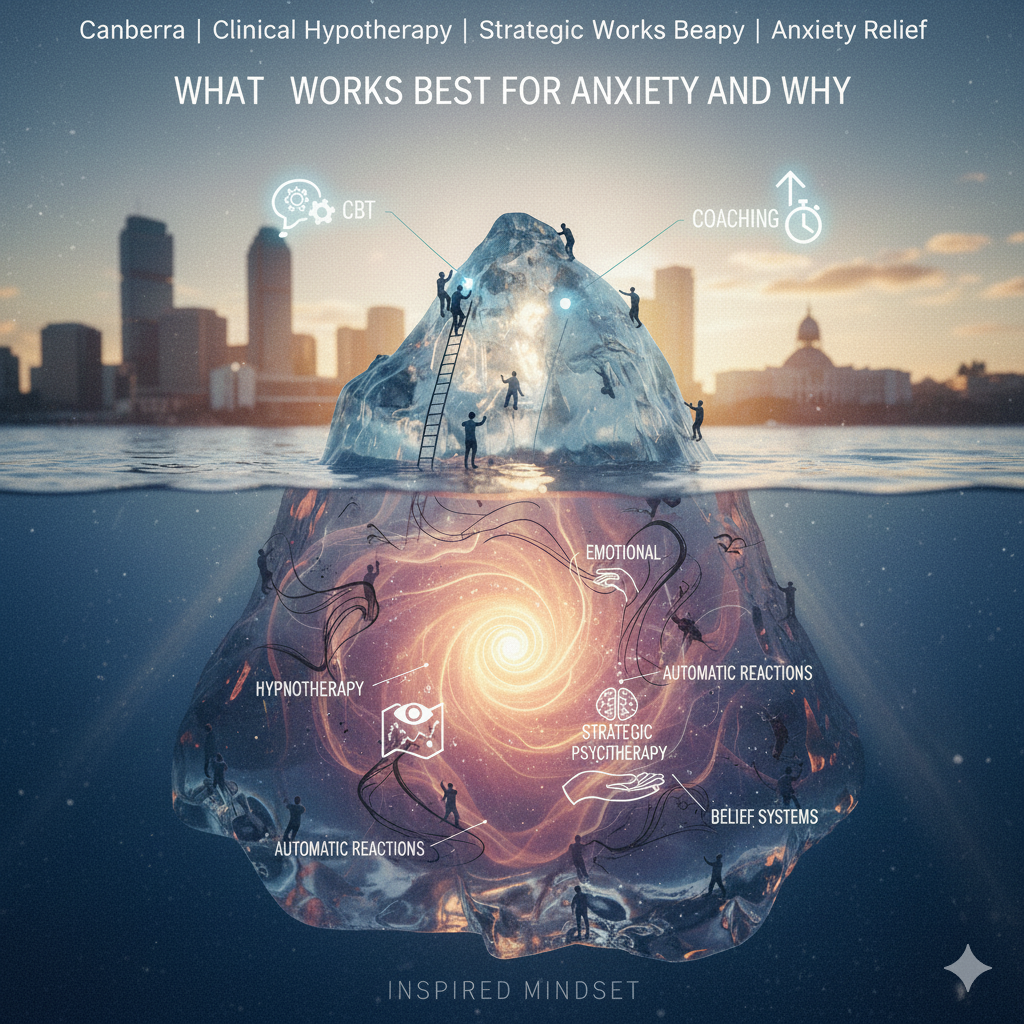Discovering the Potential: Hypnosis as a Powerful Tool in Counselling
Hypnosis, far from merely an entertaining spectacle on stage, has taken on a transformative role in Counselling. The spotlight shines on hypnosis, revealing its potency in addressing a range of behavioural issues. This blog post invites you to delve deeper into the fascinating world of hypnosis and hypnotherapy, with insights into how these methods can elevate your counselling experience.
Understanding Hypnosis: More Than Meets the Eye
When we think of hypnosis, what comes to mind? Hypnosis entails much more than its typical portrayal; it signifies a heightened state of focus where external distractions fade and receptiveness to suggestions increases. Entering a state akin to a trance allows you to disconnect from peripheral distractions and concentrate fully on the hypnotist's voice. Hypnosis isn't about controlling the mind; it's about fostering an environment conducive to deep relaxation and openness to positive influence. Imagine unlocking a door leading to a room where you can address specific problems and find tranquillity.
The Efficacy of Hypnosis: Backed by Evidence
You might question its effectiveness as you explore the intriguing world of hypnosis. Research lends credence to the power of hypnosis, particularly when combined with cognitive-behavioural therapy (CBT). Hypnosis could be the key to unlocking the full potential of CBT, with studies showcasing its efficacy in managing pain, depression, and obesity. Meta-analyses scrutinising treatment outcomes have shown that more than 70% of cases showed improvement when hypnotherapy was integrated into CBT - like a secret ingredient that enhances the therapeutic process.
The strength of the therapy lay not in the depth of the trance but in the therapeutic approach - signifying it's not about how deep you dive but the quality of the water you swim in.
Hypnosis: One Size Does Not Fit All
Despite the promising potential of hypnosis, it's crucial to realise it isn't a one-size-fits-all solution. Although effective in managing pain, facilitating weight loss, and treating addiction, hypnosis might not benefit everyone. Research indicates that individuals dealing with hallucinations, schizophrenia, or psychotic symptoms might find hypnosis unproductive or even detrimental. Hypnosis must be approached with caution and under the guidance of a qualified professional, especially when considering its suitability for individual circumstances.
The Power of Self-Hypnosis: Unlocking Your Potential
As we delve deeper into hypnosis, let's shed some light on self-hypnosis techniques, which can guide you towards your goals. Envision yourself empowered to tap into your subconscious and uncover your full potential.
Here's a straightforward self-hypnosis exercise you can try: Locate a quiet place where you can retreat from distractions. As you settle into this serene space, employ relaxation techniques such as deep breathing or progressive muscle relaxation to shed layers of tension and welcome calmness.
Once relaxed, introduce positive affirmations into your subconscious - like a pebble causing ripples in a calm pond. As you repeat these powerful statements, their impact amplifies, gradually permeating through you and reinforcing your self-belief and confidence.
As you feel ready, gently reconnect with your surroundings, carrying this newfound sense of empowerment.
Embracing Hypnosis in Counselling: Unleash the Power Within
Hypnosis isn't merely a stage spectacle; it's a scientifically validated method capable of fostering personal growth and managing anxiety. In conclusion, the benefits of Counselling and hypnosis for managing addictions, anxiety, and depression and facilitating weight loss are profound. These methods provide a holistic, non-pharmaceutical approach to handling such prevalent health issues. Hypnotherapy aids in revealing and reframing the root cause of our emotions, providing long-term resolution to feelings of anxiety and depression. On the other hand, hypnosis is a potent tool in influencing subconscious behavioural patterns, potentially leading to healthier lifestyle choices and consequent weight loss.
Both Counselling and hypnosis leverage the power of the mind, helping individuals regain control over their emotional state and life choices. Their efficacy lies in alleviating the symptoms and addressing the root cause of these conditions. However, it's essential to remember that while these therapies can offer substantial relief, they are not quick fixes. Persistence, commitment, and patience are often required to experience their full benefits.
Engaging with professional psychotherapists or hypnotherapists can be a beneficial first step towards improved mental health and a healthier lifestyle. If you or someone you know is struggling with anxiety, depression, or weight-related issues, these therapeutic methods may offer the supportive, empowering path to recovery you've been looking for. As we continue to unpack and understand the depth of the human mind, the potential for healing and growth through psychotherapy and hypnosis only continues to grow.
In conclusion, whether you're located in Canberra or elsewhere, the power of an inspired mindset can catalyse positive change in therapy. An uplifted mindset sets the stage for clients to uncover their inherent strengths, explore new perspectives, and actively engage in the therapeutic journey.
Interstate or international clients can access these transformative services online with today's digital capabilities. They can reap the benefits of therapy from the comfort of their own homes, making mental health support more accessible and convenient than ever.


















